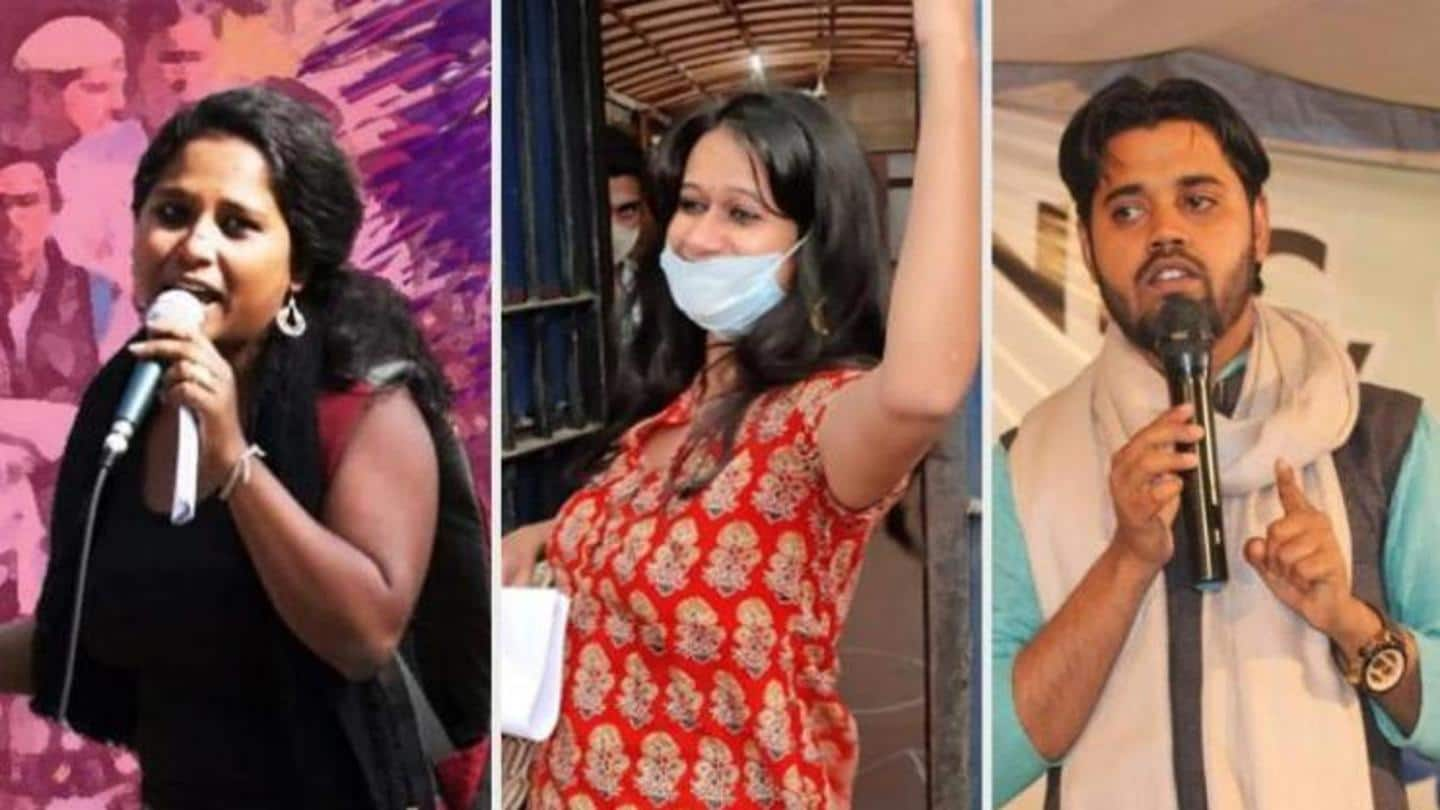
Delhi riots case: Pinjra Tod activists, Jamia student get bail
What's the story
The Delhi High Court today granted bail to three student activists - Devangana Kalita, Natasha Narwal, and Asif Iqbal Tanha - who were arrested last year in connection with the riots in the national capital.
The court highlighted there is a difference between right to protest and terrorism.
The three were arrested in May 2020 and charged under provisions of Unlawful Activities (Prevention) Act.
Quote
'State seemingly anxious to suppress dissent'
A bench of Justices Siddharth Mridul and AJ Bhambhani said, "We are constrained to express, that it seems, that in its anxiety to suppress dissent, in the mind of the State, the line between the constitutionally guaranteed right to protest and terrorist activity seems to be getting somewhat blurred."
"If this mindset gains traction, it would be a sad day for democracy," they added.
Order
What are the conditions of the bail?
The judges allowed bail, subject to a personal bond and sureties of Rs. 50,000 each.
The three will also have to surrender their passports and stay in the residences mentioned in their prison records. If they change their residence, they will have to inform the local SHO.
They will also sign an undertaking to refrain from unlawful activities and influencing witnesses in the case.
Accused
Who are the three accused who got bail?
Kalita and Narwal are both members of Pinjra Tod, a women's rights group based in Delhi. They were arrested on conspiracy charges linked to the riots.
Narwal had last month been granted interim bail to perform the last rites of her father, Mahavir Narwal, a CPI(M) leader who died of the coronavirus.
Tanha is a student of the Jamia Millia Islamia university in Delhi.
Information
New order to supersede Tanha's interim bail
For Tanha, this order will supersede the interim bail granted to him for appearing in his university exams. He was arrested last May for allegedly being part of a "pre-meditated" conspiracy in the Delhi riots.
Delhi riots
Dozens died in last year's riots in Delhi
In February 2020, violence broke out between supporters and protesters of the controversial Citizenship (Amendment) Act.
More than 50 people died and around 200 were injured in the clashes, the worst in the capital city since the 1984 anti-Sikh riots.
The Indian Parliament had passed the citizenship law in 2019 amid widespread protests against it across the country.
Law
What is the CAA?
The CAA seeks to expedite Indian citizenship for non-Muslim illegal immigrants from Pakistan, Afghanistan, and Bangladesh.
The eligible religious minorities that have been named are Hindus, Sikhs, Buddhists, Jains, Parsis, and Christians.
The legislation has been criticized for making religion a basis for citizenship.
The nationwide implementation of the law is still pending as the government has not framed the necessary rules as yet.